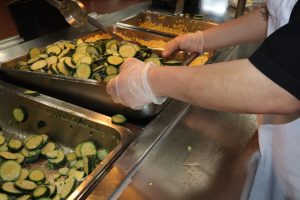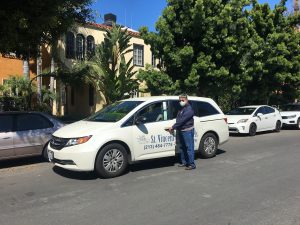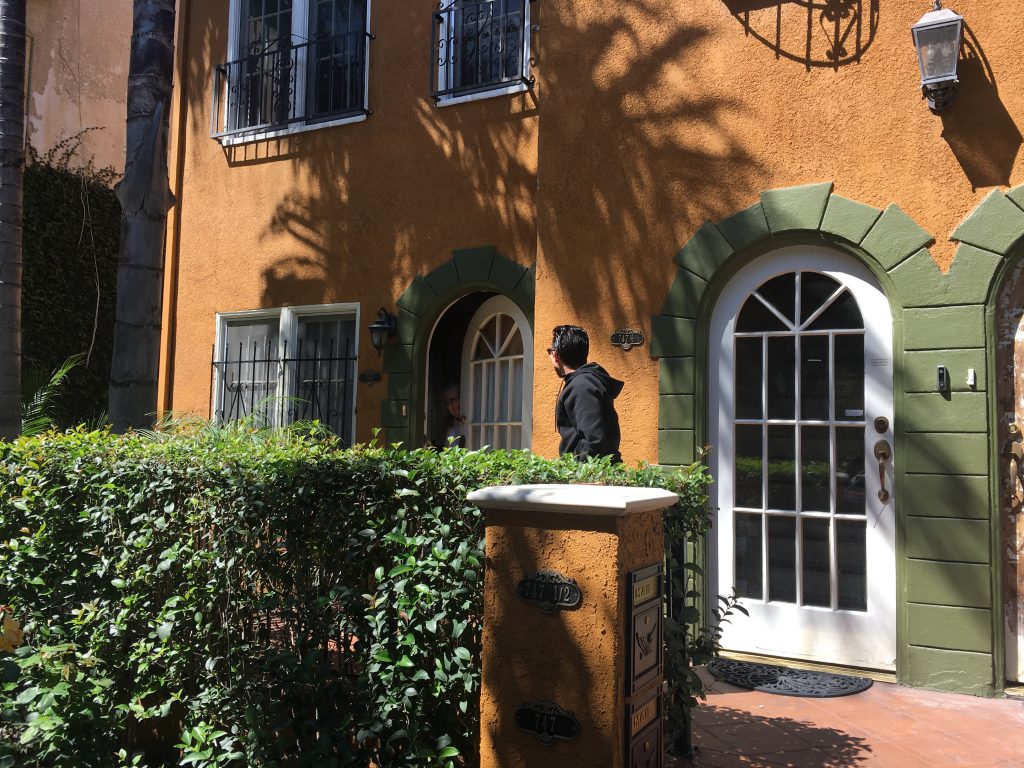The coronavirus (COVID-19) has hit seniors especially hard, with older adults around the world proving to be more susceptible to the worst of the deadly virus.
Nowhere is that reality being felt like in Italy, where the high number of infections and deaths (for a time the highest in the world, surpassing the official figures provided by China) is being linked to its having the world’s second oldest population. As of mid-March, some 87% percent of Italians who succumbed to the coronavirus were over 70.
Here in Southern California, two Catholic ministries have been directly helping older and frail Angelenos — especially those living alone — for years.
The mission of Catholic Charities of Los Angeles’ OASIS (Older Adult Services and Intervention System) program in Ventura County has always been to help seniors stay in their own homes, living independently, for as long as possible. After developing an individual care plan for an isolated senior citizen, staff and volunteers make regular home visits, checking on clients’ health, making sure they’re eating nutritional meals, and even taking them to doctor, dental and other appointments.
Another local program, St. Vincent Meals on Wheels, has been producing and delivering nutritious meals to homebound seniors — most of whom live alone — for more than 30 years. Besides bringing hot meals to more than 1,000 older clients in the Los Angeles area six days a week, drivers and volunteers regularly conduct what amount to informal welfare checks on clients. Often, these visitors are the only individuals that isolated older adults see and speak to all day.
Even before the coronavirus outbreak was declared a pandemic by the World Health Organization on March 11, both programs were already gearing up their outreach to the particularly vulnerable older adults they already serve, and those they don’t, too.
“We’ve been trying to call all of our clients, especially the ones who are homebound,” said Lisa Nagy, program manager of OASIS for almost the last six years.

While it helps that OASIS personnel already have a good idea of what their clients’ immediate needs are — toilet paper, water, and now things like thermometers and food items — their challenge is now that of every shopper affected by the pandemic: finding those things.
“We’ve also had clients who need nutrition drinks like Ensure, and people are even hoarding them,” Nagy told Angelus in a phone interview. “So it’s been really difficult.”
The obligatory “social distancing” of the past few weeks has also affected the program’s visits to the homebound, especially to the most isolated clients.
“We’re really limited on just being able to call most people, which, of course, isn’t the same,” said Nagy. “And if we have to drop something off, it’s at their doorstep. We don’t want them to feel like we’re too close even coming to the door.”
CEO and executive director of the local St. Vincent Senior Citizen Nutrition Program Veronica Dover said her program is dealing with similar concerns about social distancing and making sure the most vulnerable Meals on Wheels daily recipients aren’t risking exposure. But she’s worried, too, about keeping up the reaching-out, loving interaction with clients, trusting relationships that took weeks, months, and even years to establish.
In a March 16 letter to “friends” of the program, Dover made a point of assuring that “wellness/love checks” are a hallmark of the program and always will be.
But because of the public health recommendations, deliveries have been cut from six days a week to Mondays, Wednesdays, and Fridays. Extra sandwiches and frozen meals are delivered to make up the difference. Staff and volunteers have received extensive training on how to best keep themselves and clients safe and healthy — and separated.
Dover knows well that all this social distancing is being done to protect elderly clients.
“We’re incredibly worried about making sure that we implement the public officials’ guidelines, and we protect the older people we serve from this virus,” she said. “But we want to continue to keep in mind our mission, which includes not just the meals that we deliver. That’s just one part of it. It’s the connection and the love, and letting them know that the community hasn’t forgotten about them. All of those things have to happen.”

Still, both Dover and Nagy are concerned about how clients will deal with the cutbacks. Nagy said she’s not hearing back from clients like she usually does. Their silence makes her anxious: Could it be a signal that they’re so scared that they’re just pulling back like a snail into its shell?
She also knows that many isolated clients don’t understand what this “virus thing” is really all about, only that the visits to their homes are becoming less frequent.
“We want to make sure that they know they can still call us and we can still offer help,” Nagy said. “We can continue to be their advocates, because there’s a lot of new scams out there and a lot of misinformation. So we try to stay on top of things, even that they need to wash their hands for 20 seconds.”
Part of that outreach includes reminding recipients that the program is in the category of “essential services” and that they won’t be going away any time soon.
Dover said that staff and volunteers have had to take measures like leaving meals at people’s doors — or put in bags and hung on door knobs — whatever it takes to keep the prescribed 6-foot “social distance.” But for older people limited to their wheelchairs or a bed, workers still must hand-deliver meals.
Both organizations have the resources they need to keep helping the elderly well into the summer and beyond. What worries them, both women told Angelus, is the unpredictability of the mounting restrictions and mandates from government officials that threaten to further complicate their efforts.
Nagy’s staff is making many more phone calls than visits with clients. But a few are still going out to see their most isolated clients. “But we’re being very careful and complying with the 6-foot ordinance, keeping a distance,” she said.
At OASIS, meanwhile, client resource coordinators are still working on individual plans for older adults so they can stay in their homes and be independent, even in this crisis. Workers and volunteers are making sure their clients’ health doesn’t worsen, and that they have their medications and enough food.
“We’re still carrying on the best we can,” Nagy added. “And we will until something else changes. We’re just going to keep going until we’re told not to.”

